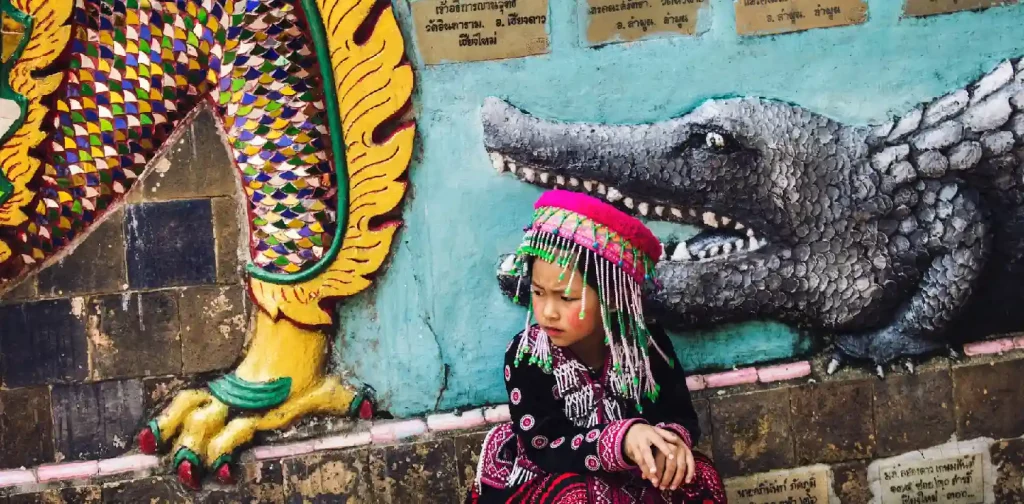E-sak Ka Ou Declaration on Indigenous Peoples’ Rights and Climate Action

Photo: Dani Aláez on Unsplash.
Environmental degradation in recent decades has made the world turn back to a concept that has been true all along: Indigenous Peoples as stewards of the land. In this light, Indigenous communities in Asia released the E-sak Ka Ou Declaration, addressing the rights of Indigenous Peoples and climate action.
E-sak Ka Ou Declaration
“E-sak Ka Ou” literally means the gill of the Manta ray. It is a term used by the Urak Lawoi, referring to where their ancestors first built their lives on Lanta Island in Krabi, Thailand. The Krabi Province was also where the E-sak Ka Ou Declaration was developed at the Asia Regional Conference on Indigenous Peoples’ Rights, Biodiversity, and Climate Change in November 2023.
The Declaration involves 47 delegates representing Indigenous communities and development organizations from 11 countries. The list includes the Asia Indigenous Peoples Pact (AIPP), the Center for Indigenous Peoples’ Research and Development (CIPRED), the National Indigenous Women’s Federation (NIWF), and others.
In short, the E-sak Ka Ou Declaration is “a statement of our collective position as Indigenous Peoples towards seeking collaborative solutions to the urgent concerns and issues confronting us and the whole of humankind.”
Indigenous Peoples and Climate Action
The document opens with a preamble from Joni Odochau, “Life and land are the same.”
Essentially, the E-sak Ka Ou Declaration calls for the acknowledgment and protection of Indigenous Peoples’ rights so they can fulfill their role in taking care of people, the planet, and their cultural heritage.
The Declaration emphasizes the need for a whole-of-society approach to climate action. This includes the effective and meaningful participation of Indigenous Peoples in decisions concerning climate change and biodiversity.
It calls for establishing a dedicated space for Indigenous Peoples – including Indigenous women, youth, and people with disabilities – at the policymaking level, such as in the development of the National Biodiversity Strategies and Action Plans (NBSAPs). This space would also extend to implementation, monitoring, and reporting.
Furthermore, the Declaration highlights the importance of capacity building. It also demands support for the nurturing and intergenerational transfer of Indigenous knowledge on their own peoples and the ecological and environmental balance.
Framework Transformations
Despite the adoption of the Kunming-Montreal Global Biodiversity Framework, the Declaration notes that national laws and frameworks on protected areas still hold “the colonial legacies of the fortress approach to conservation.” These practices mostly fail to recognize Indigenous ownership over territories and resources. Therefore, they tend to violate Indigenous Peoples’ rights, criminalize the defenders, displace Indigenous communities, and disregard Indigenous conservation practices.
Therefore, the existing frameworks on climate action and biodiversity must change to address the harms done to Indigenous communities across the globe and ensure their active participation. The Declaration also calls for the establishment of financing mechanisms that would support these efforts, including a dedicated fund for the severe economic and non-economic loss and damage Indigenous Peoples experience due to climate change.
Read the full document here.

Co-create positive impact for people and the planet.
Amidst today’s increasingly complex global challenges, equipping yourself, team, and communities with interdisciplinary and cross-sectoral insights on sustainability-related issues and sustainable development is no longer optional — it is a strategic necessity to stay ahead and stay relevant.

Nazalea Kusuma
Naz is the Manager of International Digital Publications at Green Network Asia. She is an experienced and passionate writer, editor, proofreader, translator, and creative designer with over a decade of portfolio. Her history of living in multiple areas across Southeast Asia and studying Urban and Regional Planning exposed her to diverse peoples and cultures, enriching her perspectives and sharpening her intersectionality mindset in her storytelling and advocacy on sustainability-related issues and sustainable development.


 Reframing Governance in the Era of Water Bankruptcy
Reframing Governance in the Era of Water Bankruptcy  Strengthening Resilience amid Growing Dependence on Space Infrastructure
Strengthening Resilience amid Growing Dependence on Space Infrastructure  Indian Gig Workers Push Back Against 10-Minute Delivery Service Strain
Indian Gig Workers Push Back Against 10-Minute Delivery Service Strain  Call for Governance: Grassroots Initiatives Look to Scale Efforts to Conserve Depleting Groundwater
Call for Governance: Grassroots Initiatives Look to Scale Efforts to Conserve Depleting Groundwater  Integrating Environment, Climate Change, and Sustainability Issues into Education Systems
Integrating Environment, Climate Change, and Sustainability Issues into Education Systems  Finally Enforced: Understanding the UN High Seas Treaty
Finally Enforced: Understanding the UN High Seas Treaty